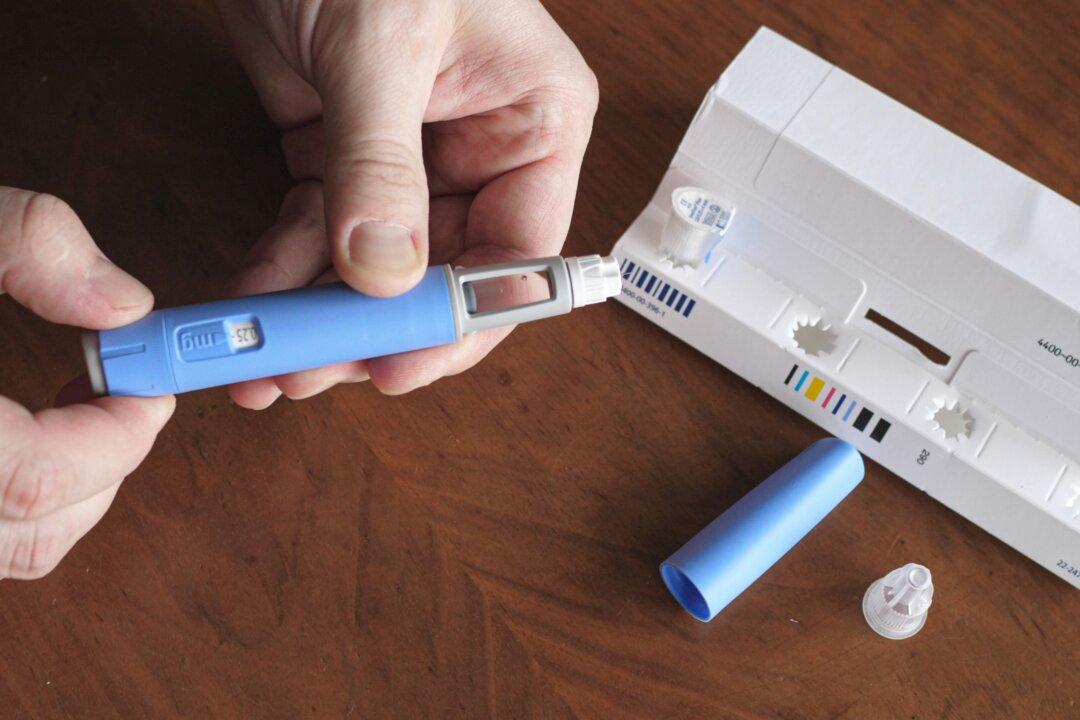Americans are set to face a triple threat of infectious diseases as the cold weather season advances.
Have COVID Restrictions Stunted Immunity Against Infection?
“Part of the protection against a seasonal viral illness is the result of lingering protection from exposure in prior years,” Dr. Charles Bailey, MD, Medical Director, Infection Prevention Providence St. Joseph Hospital and Providence Mission Hospital, told The Epoch Times.He explained that the significantly lower incidence of influenza and RSV over the recent two years when COVID shutdowns and other precautions were practiced has now left us without the immune protection from recent prior exposures.
He says it’s happening because the children have been free of immune exposure for the last three years, by not socializing with other kids in school.
Scientists concluded that wearing masks for long periods “alters immunological parameters that initiate the immune response, making the body weaker in its resistance to infectious agents.”
“I don’t think patients are more severe,” he said. “But I do think the amount of spread of these respiratory viruses has increased because of the relative decrease in antibodies because of how good masking was at preventing a lot of these infections.”
Cioe-Pena noted that masking was better at preventing flu and RSV.
He also mentioned that given there is no vaccine on RSV and the flu vaccine uptake is low, it will be part of the reason for this year’s infection surge.
The Difference Between a Cold, Flu, or RSV
Dr. Christopher Calandrella, DO chair of emergency medicine at Long Island Jewish Forest Hills in New York, said that distinguishing which virus is causing infection can be “challenging” based on symptoms alone.“All three share similar presentations with cough, congestion, runny nose and other respiratory complaints,” he explained.
While not always consistent, there are some symptoms that tend to be more often associated with one type of infection, noted Calandrella.
“Such as loss of taste and smell with COVID, muscle and body aches with influenza, and wheezing with RSV,” he said. “The onset may be variable with all three, however the flu tends to progress more rapidly compared to RSV and COVID.”
Lahita said that the greatest difference between a cold and RSV is that a cold doesn’t result in an adult or child having difficulty breathing and using accessory muscles, like the abdomen, to get enough air.
“Neither does the flu,” he added, although flu can be as or even more deadly than RSV.
RSV, however, could cause severe breathing difficulty. Lahita described the most obvious symptom of this infection:
“It’s pretty severe, and this apparently is going through the young population, infants and youngsters below the age of 3.”
Lahita advises that if your child is running a slight fever, and is struggling breathing, using their whole abdomen to help their lungs, and breathing very rapidly, then there is respiratory distress and parents shouldn’t waste time getting a professional opinion.
Omicron Variant COVID-19 Most Dangerous for Immunocompromised
Unlike previous COVID strains that infect the lower lungs, the current spreading Omicron variant only causes upper respiratory infection, which is more mild.
The WHO reports that the recent decline in COVID-19 testing around the world means that the true number of cases might be underestimated.
Lahita noted that this variant is most dangerous for people with weakened immune systems.
“Just like with RSV and influenza, there are adults–that is, people over the age of 12–who have inborn errors of immune function; when they get COVID Omicron, they’re at risk for dying,” he said.
Lahita said this means when they get something that’s usually a mild infection, it can be potentially fatal.
- Alcoholism
- Addiction to cocaine and heroin
- Chain smoking
“So there are various subgroups of people who have compromised adaptive immunity,” he continued. “Their inability to make the appropriate antibodies to the viruses, [and] that maybe don’t have natural killer cells that are necessary to combat viral infections—these are people who succumb to the Omicron.”
Boosting Our Immune Protection
Lahita said effective ways to boost our immunity include not abusing alcohol, not smoking, keeping a healthy lifestyle and eating properly, and not becoming obese.“People who are very obese have major problems combating these infections–and this is a known fact,” he said. “In fact the fatter you are, the more likely you are to succumb to COVID in general, not necessarily Omicron, but the Delta is still out there.”
He also recommends we make sure we have enough vitamin D, and to make sure that we maintain high levels of vitamin C.




